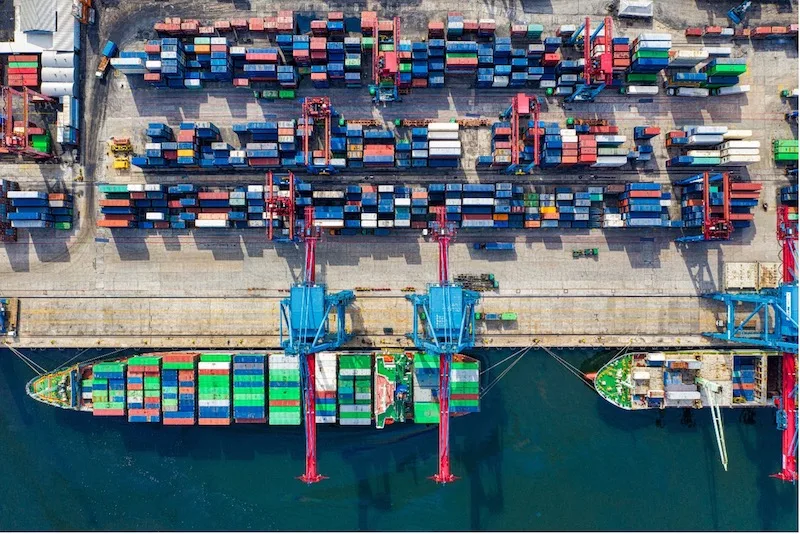The Impact of AI on Supply Chain Management
Artificial intelligence (AI) has been transforming various industries, and supply chain management is no exception. AI is having a profound impact on the way businesses manage their supply chains, enabling them to improve efficiency, reduce costs, and increase overall profitability. In this blog, we will explore the impact of AI on supply chain management and how businesses can leverage this technology to achieve their supply chain goals.

AI has changed the game
The first way AI is impacting supply chain management is by providing real-time data and insights into supply chain operations. With AI, businesses can gather and analyse large amounts of data from various sources, such as sales trends, customer behaviour, and supply chain metrics, to make informed decisions about their supply chain operations. This data-driven approach to supply chain management allows businesses to make more accurate predictions about demand, optimise their operations, and make better decisions about inventory management and resource allocation.
Another way AI is impacting supply chain management is by automating routine and repetitive tasks. AI algorithms can be trained to perform tasks such as demand forecasting, order processing, and inventory management, freeing up valuable time and resources that can be better spent on more strategic initiatives. Additionally, AI-powered automation reduces the risk of human error, increasing efficiency and accuracy in supply chain operations.
AI is also impacting supply chain management by enabling real-time monitoring and tracking of goods in transit. With AI-powered tracking and monitoring, businesses can improve the visibility of their supply chain operations, allowing them to identify and address potential bottlenecks and delays. This real-time data can be used to optimise the flow of goods, reducing the risk of stockouts and overstocking, and improving overall supply chain efficiency.

In addition, AI is having a significant impact on the logistics and transportation aspects of supply chain management. With AI-powered logistics, businesses can optimise their delivery routes, reduce transit times, and lower transportation costs. Additionally, AI algorithms can analyse traffic patterns, road conditions, and other data to optimise delivery routes in real-time, improving delivery times and reducing the risk of delays.
Another way AI is impacting supply chain management is by enabling more effective risk management. With AI, businesses can analyse large amounts of data, identify potential risks, and develop contingency plans to minimise their impact. For example, AI algorithms can predict supply chain disruptions, such as natural disasters or production outages, allowing businesses to quickly respond and minimise the impact on their operations.
The challenges AI brings
Despite its many benefits, the implementation of AI in supply chain management is not without challenges. One of the biggest challenges is the need for high-quality, accurate data. To effectively leverage AI in supply chain management, businesses must have access to high-quality data from various sources, such as sales trends, customer behaviour, and supply chain metrics. Additionally, businesses must be mindful of the need for data security and privacy, ensuring that sensitive information is protected from unauthorised access and misuse.
Another challenge businesses face when implementing AI in supply chain management is the need for specialised skills and expertise. AI algorithms are complex and require specialised skills and expertise to develop, train, and maintain. Businesses must ensure that they have the necessary skills and resources in-house or seek external support from experts in the field.

Positively using AI in supply chain management
To use AI to your advantage in supply chain management, you would need to be qualified in the field. IMM Graduate School’s BCom in International Supply Chain Management qualification is designed to provide students with the knowledge and skills necessary to manage and optimise the global movement of goods and services. This programme is offered both on-campus and online and is structured to be completed over three years of full-time study.
The curriculum is designed to provide students with a comprehensive understanding of supply chain management, including procurement, logistics, transportation, and inventory management. The programme places a strong emphasis on the use of technology and data analysis in supply chain management, and students will learn how to use software tools and analytical techniques to optimise supply chain operations.
In conclusion
AI is having a profound impact on the way businesses manage their supply chains. With its ability to provide real-time data and insights, automate routine tasks, enable real-time monitoring and tracking, optimise logistics and transportation, and enable effective risk management, AI is a powerful tool for businesses looking to improve their supply chain operations. However, businesses must be mindful of the need for high-quality, accurate data, the need for specialised skills and expertise, and the importance of data security and privacy when implementing AI in their supply chain.
